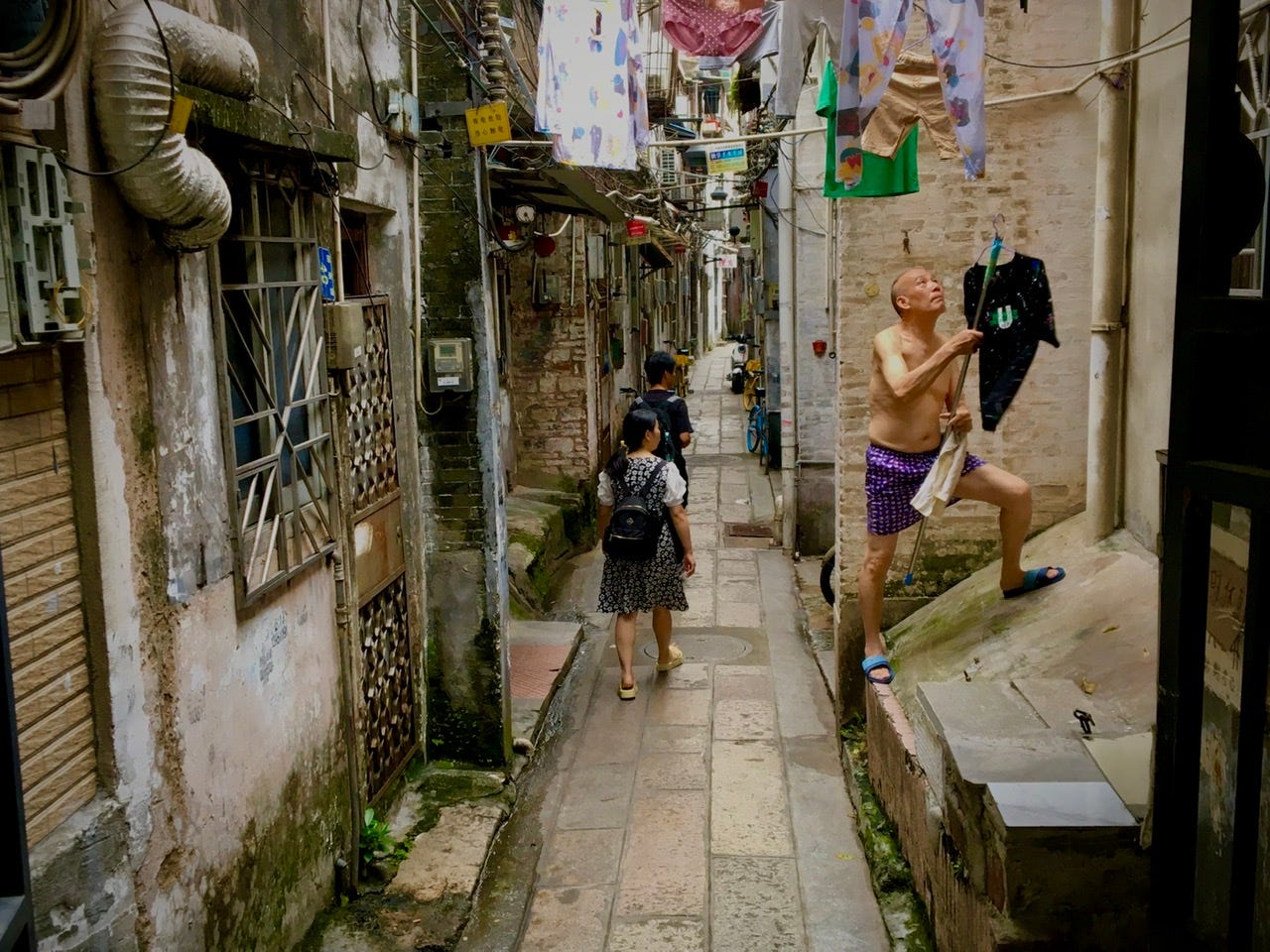Napoleon Bonaparte is supposed to have commented that ‘China is a sleeping giant: let her sleep, for when she wakes she will shake the world.’ The exact date you choose might depend on your political affiliations, but everyone agrees that at some point in the twentieth century, China woke up. For a while, it looked like the twenty-first century would see the world heave back to its traditional setup, the way things stood for thousands of years before the brief blip we call the Industrial Revolution: China would be at the centre, and everywhere else would be on the edge. But now, the mood has shifted: the Chinese economy is on the verge of stagnation, and the shaking of the world is, at the very least, on pause. Why did this happen? What does it mean? And what ancient spirits might be teeming in the gap between expectation and outcome?
From now until September, Numb at the Lodge will be in China, investigating these questions and more. Paid subscribers can join us in a brain-melting tourist odyssey across the past and future of Chinas real and imagined. This is a travel blog now.
Today I’m writing from Guangzhou in the Pearl River Delta, where I have been haunted by fox-spirits.
Guangzhou is the China people imagine when they imagine China. Hot, shirtless alleyways; menus that contain every living animal and a few mythological ones; faded old Art Deco buildings wreathed in telephone wire; fish heads in the gutters; fermenting, numerous, busy. This place is slightly shabby, in its old core at least, but it’s also tremendously rich. The metro is gleaming and futuristic; there are skyscrapers in the shape of enormous coins that tingle with multicoloured lights like cuttlefish at night. One-twentieth of all global exports come out of this estuary. The Pearl Delta is the gasping mouth of the world economy: spewed out or sucked in, everything that exists passes through here.
It’s become very tedious to keep observing how much China has changed in the last few decades, but it really has changed, and this is where the change began. One of the books I’ve been reading here is an account of a Chinese writer’s travels across the country in the early 1980s, and the China he describes is unrecognisable: poor, unfathomably poor, a dusty landscape of mud huts and unpaved roads, sweltering one-room apartments with shared latrines down the hall, three families to each electric fan, where women are kidnapped from train stations and sold off for marriage, and where dancing too intimately in your own home could carry a jail sentence. But across China, people keep whispering about the new special economic zone in the Pearl River Delta: there, they wear business suits instead of blue tunics, your boss at the factory is called a manager, and you can pick up Hong Kong soap operas on your TV. At the beginning of the 1980s, Guangzhou was a medium-sized port city surrounded by rice paddies and fishing villages, not much bigger than Liverpool; today it’s just one fragment of the Guangzhou-Shenzhen-Zuhai-Foshan-Dongguan-Zhongshan-Jiangmen-Huizhou-Zhaoqing-Hong Kong-Macau gigacity, a rash of nearly contiguous high-density cyberpunk sprawl that’s broken out across the region, larger than the average European country, home to nearly seventy million people: easily the biggest conurbation on the planet. Now there’s an entire mall in Guangzhou devoted to sex shops, and another filled with creepy figurines of anime girls, each with a skirt you can peer up to gawp at her tiny, hard, injection-moulded buttocks. What an age. What a world.


